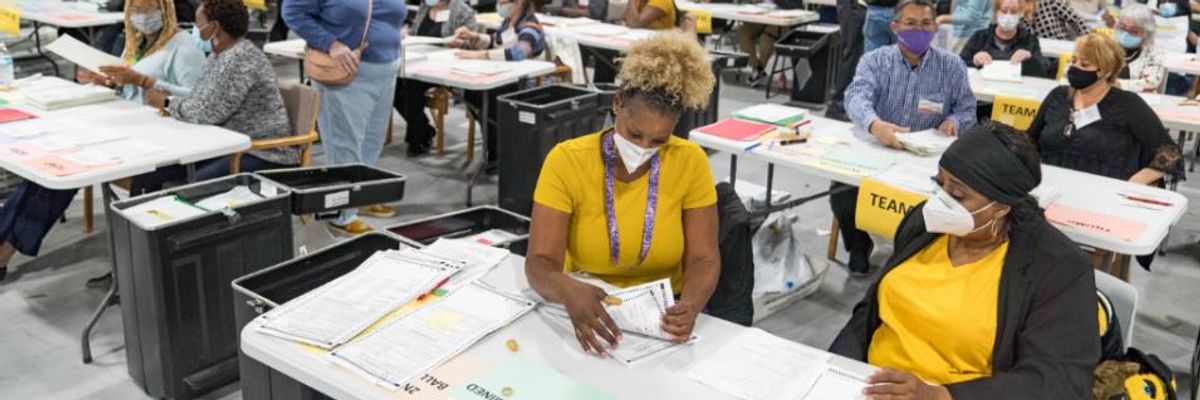More must be done to recruit and retain poll workers
It is crucial to recruit and retain a diverse set of poll workers to help run elections. This is especially true when large numbers of permanent election officials are leaving their jobs due to threats, harassment, and burnout, among other factors.
For the past 2 1/2 years, the nation has suffered the effects of the COVID-19 pandemic, which made it risky for poll workers--especially elderly people--to staff crowded polling locations. Specifically, health concerns led to poll worker shortages in 2020. Now, stakeholders are recruiting a new cohort of younger poll workers to replace older ones. This trend began in 2020, when the percentage of poll workers ages 18-40 increased and the percentage of poll workers ages 61 and older decreased, compared with 2016. In some jurisdictions, people as young as 16 can serve as poll workers.
Coinciding with the pandemic, there has also been an unfortunate increase in threats of violence against election employees and poll workers based on the "big lie" of widespread voter fraud.
It is unsurprising, then, that 52 percent of election jurisdictions reported that it was difficult to obtain a sufficient number of poll workers for the 2020 election, according to EAC data. Clearly, government agencies and private organizations must continue to conduct sustained efforts to recruit poll workers--especially young, diverse, bilingual, and tech-savvy individuals.
For example, the EAC spearheads National Poll Worker Recruitment Day, connecting people with information about applicable requirements. Power the Polls, a group founded by civic groups and businesses, attracted 700,000 poll workers in 2020 and has signed up more than 125,000 people in 2022. And the National Bar Association recruits lawyers to serve as poll workers, while Vet the Vote recruits veterans and their family members. Similar efforts exist to recruit Hispanic and LGBTQ+ poll workers.
Notably, application deadlines for poll workers vary by state. Most jurisdictions accept applications on a rolling basis.
Some places, such as the state of Alabama, already expect an adequate supply of poll workers, while jurisdictions such as the city of Philadelphia have recently been facing shortages.
Poll workers must be supported so they can continue to strengthen their communities
Poll workers are champions of democracy who are committed to their country and their communities. In interviews conducted by PolitiFact, poll workers reflected that they want "to give back to their communities, gain a closer look at the election process and enable their neighbors to cast ballots." Others expressed wanting to "make sure that everybody feels good about their elections in their neighborhood."
Poll workers are champions of democracy who are committed to their country and their communities.
In this age of rampant political disinformation, these public servants are also using their voices to counter falsehoods about stolen elections--explaining to friends, family, and coworkers how elections are properly administered in an effort to help reduce the spread of disinformation, mistrust of election results, and political violence.
Simply put, poll workers deserve to be heralded for the vital function they play in our democracy. At the same time, law enforcement authorities and election administrators must take all measures necessary to ensure the safety of poll workers, protecting them against extremist threats of violence or intimidation.
Conclusion
Because protecting democracy is a duty shared by all Americans, the more people who are involved in the administration of free and fair elections, the better. Both civic engagement and trust in elections are enhanced when community members staff local polling places and help their neighbors navigate the voting process. By creating a virtuous cycle, poll workers are helping build a democracy where all Americans can fully exercise their political power.
In 2020, CAP published a report detailing a wide range of innovative methods to recruit and retain diverse poll workers--including recommendations for individuals, state and local governments, professional associations, political parties, high schools, colleges and universities, nonprofits and philanthropic organizations, and religious communities.
